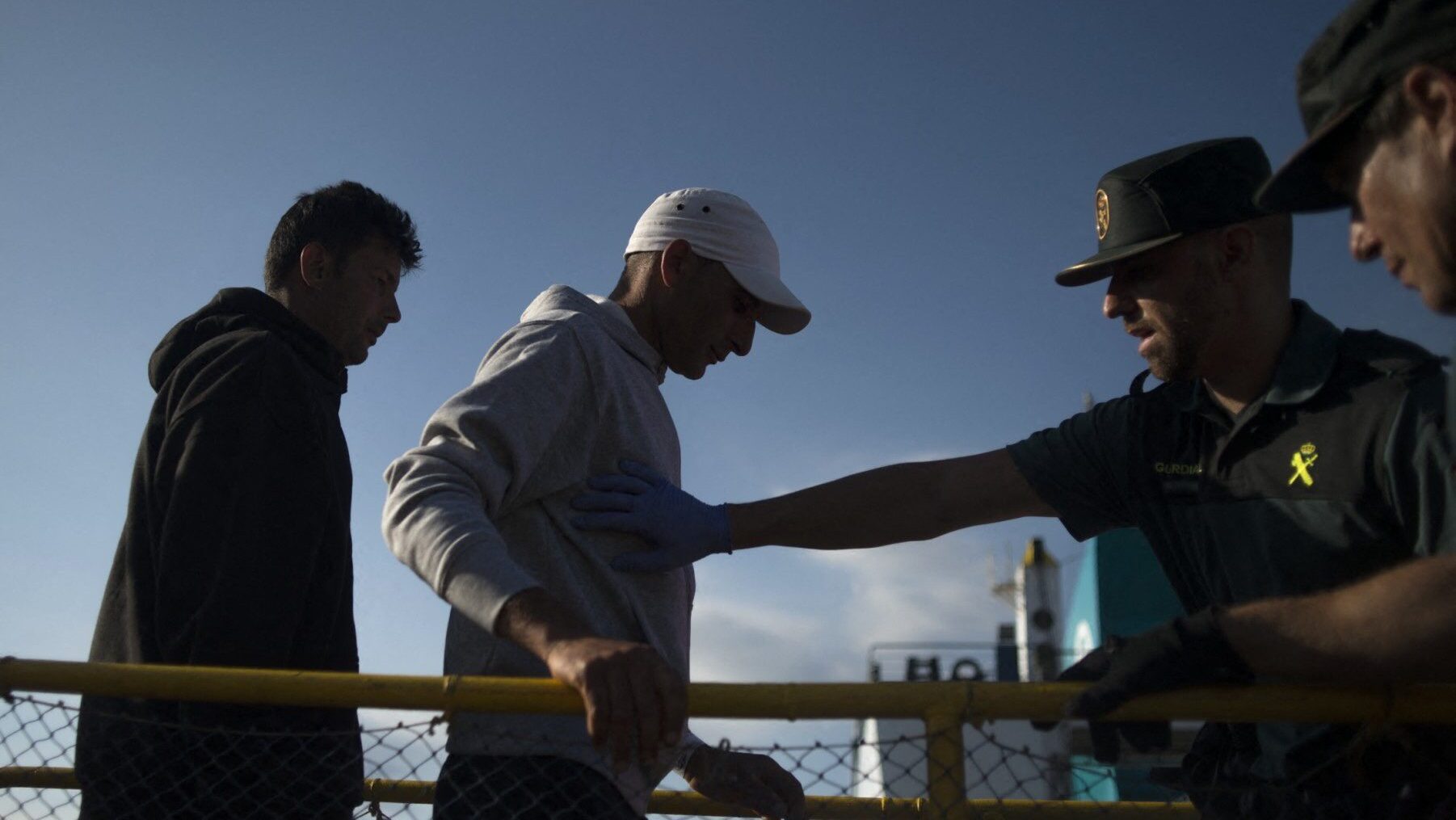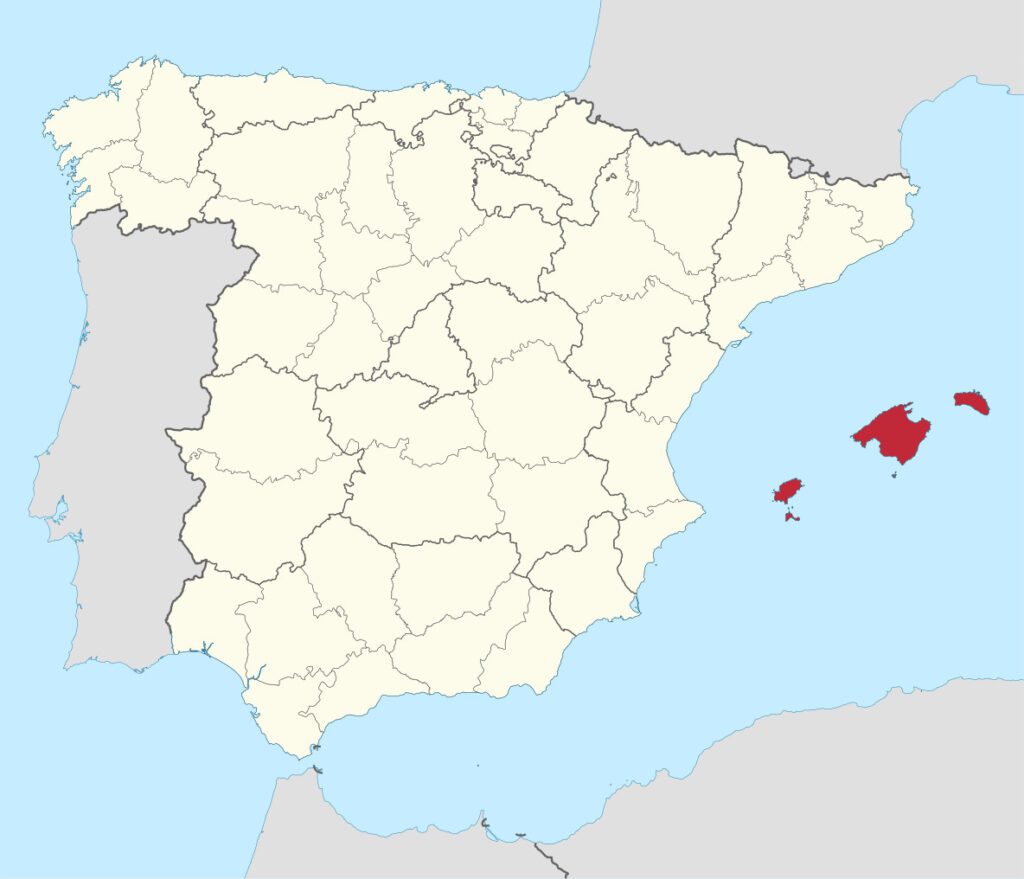
Migrants are helped by members of the Spanish Guardia Civil after arriving aboard a coast guard boat at Algeciras’ harbour on June 30, 2018, after an inflatable boat carrying 38 immigrants was rescued by the Spanish coast guard off the Spanish coast.
Photo: JORGE GUERRERO / AFP
The Balearic Islands are often overlooked in reports about illegal immigration. The Spanish ministry of the interior effectively leaves out statistics related to the Balearic archipelago in its reports, even though it is currently the fastest-growing migration route compared to last year. The situation is becoming critical, and the threat of a migration surge looms larger over the islands each day.

According to sources from the National Police’s General Commissariat for Foreigners and Borders (CGEF), illegal immigration in the Balearic Islands has already surpassed 3,000 arrivals this year, representing an increase of nearly 220% compared to last year.
Historical data from the UNHCR show that, as of September 17, 2023, 1,015 illegal immigrants had arrived in the Balearic Islands. This figure has tripled with a total of 3,245 arrivals this year. Compared to 2019, when the Balearic route began to consolidate, the increase exceeds 600%.
The areas most affected by this influx are Formentera and the small island of Cabrera, as they are closest to the common departure points in Algeria, specifically Tipasa and Dellys. These northern Algerian coastal areas are where criminal networks are most active in organising boats headed for the Balearic Islands.
The growing migration to the Balearic Islands is largely due to the impunity enjoyed by illegal immigrants of Algerian origin who reach the islands. “There isn’t a day without Algerians being detained,” National Police sources say, while acknowledging that most are released within hours.
This situation stems from the government’s inability to deport illegal immigrants arriving from Algeria. According to the Attorney General’s latest report, “in 2023, the use of detention measures in the CIE (Immigrant Detention Centers) in the Balearic Islands has decreased,” despite a continued rise in the number of small boats arriving.
The Prosecutor’s Office also notes that this is largely because “the repatriation of Algerian citizens has been suspended,” and the police have stopped requesting permission to detain them in CIEs. Since Algeria refuses to take them back, even repeat offenders are released with the hope that they will voluntarily leave the islands.
The current pull effect is not the only factor that could lead to a migration surge in the Balearic Islands. Illegal immigration to Italy has dropped by over 60% compared to last year, thanks to agreements between Italy’s Giorgia Meloni and Tunisia’s leader, Kaïs Saied, which have significantly reduced migration from Tunisia to Italy.
Meanwhile, the National Police’s CGEF agents report that Tunisians have already been detected on migration routes leaving from Algeria, signalling a shift in routes that could result in a significant rise in illegal immigration to the Balearic Islands.
“So far, the numbers are still low,” say sources consulted by La Gaceta, but this trend has been increasing in recent months. Both the National Police and the Civil Guard are monitoring the situation closely, fearing a potential migration surge in the archipelago.
This article, written by Rubén Pulido was first published in La Gaceta and appears here with kind permission. It has been translated and edited for length.
